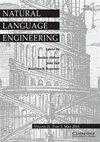Killing me softly: Creative and cognitive aspects of implicitness in abusive language online
IF 1.9
3区 计算机科学
Q3 COMPUTER SCIENCE, ARTIFICIAL INTELLIGENCE
引用次数: 3
Abstract
Abusive language is becoming a problematic issue for our society. The spread of messages that reinforce social and cultural intolerance could have dangerous effects in victims’ life. State-of-the-art technologies are often effective on detecting explicit forms of abuse, leaving unidentified the utterances with very weak offensive language but a strong hurtful effect. Scholars have advanced theoretical and qualitative observations on specific indirect forms of abusive language that make it hard to be recognized automatically. In this work, we propose a battery of statistical and computational analyses able to support these considerations, with a focus on creative and cognitive aspects of the implicitness, in texts coming from different sources such as social media and news. We experiment with transformers, multi-task learning technique, and a set of linguistic features to reveal the elements involved in the implicit and explicit manifestations of abuses, providing a solid basis for computational applications.温柔地杀死我:网络辱骂性语言中隐含的创造性和认知方面
辱骂性语言正在成为我们社会的一个问题。传播强化社会和文化不容忍的信息可能对受害者的生活产生危险影响。最先进的技术往往能有效地检测出明显的虐待形式,使那些攻击性很弱但伤害性很强的话语无法识别。学者们对具体的间接形式的辱骂性语言进行了先进的理论和定性观察,使其难以被自动识别。在这项工作中,我们提出了一系列能够支持这些考虑的统计和计算分析,重点关注来自不同来源(如社交媒体和新闻)的文本中隐含性的创造性和认知方面。我们使用变形器、多任务学习技术和一组语言特征进行实验,以揭示滥用的隐性和显性表现所涉及的元素,为计算应用提供坚实的基础。
本文章由计算机程序翻译,如有差异,请以英文原文为准。
求助全文
约1分钟内获得全文
求助全文
来源期刊

Natural Language Engineering
COMPUTER SCIENCE, ARTIFICIAL INTELLIGENCE-
CiteScore
5.90
自引率
12.00%
发文量
60
审稿时长
>12 weeks
期刊介绍:
Natural Language Engineering meets the needs of professionals and researchers working in all areas of computerised language processing, whether from the perspective of theoretical or descriptive linguistics, lexicology, computer science or engineering. Its aim is to bridge the gap between traditional computational linguistics research and the implementation of practical applications with potential real-world use. As well as publishing research articles on a broad range of topics - from text analysis, machine translation, information retrieval and speech analysis and generation to integrated systems and multi modal interfaces - it also publishes special issues on specific areas and technologies within these topics, an industry watch column and book reviews.
 求助内容:
求助内容: 应助结果提醒方式:
应助结果提醒方式:


